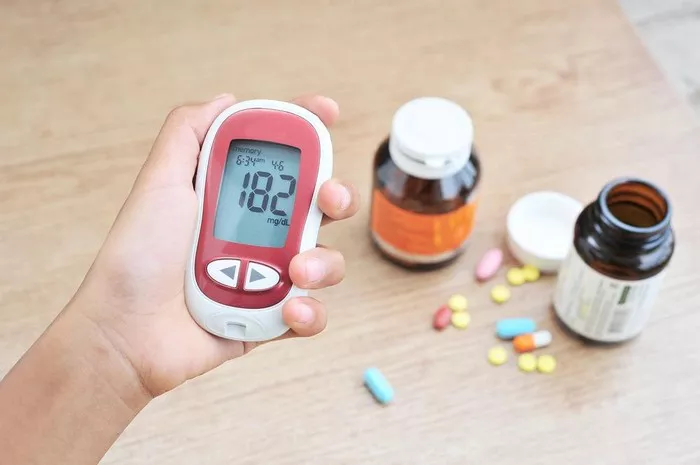Hyperglycemia, characterized by elevated blood glucose levels, is a common condition among individuals with diabetes mellitus. While the primary focus in managing hyperglycemia often revolves around glycemic control, the impact on electrolyte balance, particularly sodium, is frequently overlooked. However, correcting sodium levels in hyperglycemia is paramount, as dysregulation can lead to significant complications and exacerbate the clinical course of the condition. In this article, we delve into the intricate relationship between hyperglycemia and sodium imbalance, exploring the physiological mechanisms, clinical implications, and therapeutic strategies for optimizing patient outcomes.
Physiological Mechanisms
To comprehend the importance of correcting sodium in hyperglycemia, it is essential to understand the underlying physiological mechanisms that govern this relationship. Hyperglycemia induces an osmotic diuresis, wherein excess glucose in the blood spills into the urine, drawing water along with it. This diuretic effect leads to dehydration and subsequent volume depletion. Consequently, the body activates compensatory mechanisms to maintain vascular volume, including the release of antidiuretic hormone (ADH) and aldosterone.
ADH, also known as vasopressin, acts on the kidneys to promote water reabsorption, aiming to conserve fluid and prevent further dehydration. However, ADH also impacts sodium handling in the kidneys by increasing the permeability of the renal collecting ducts to water, which can result in dilutional hyponatremia. Concurrently, aldosterone secretion is stimulated by hyperglycemia, enhancing sodium reabsorption in the distal tubules of the kidneys while promoting potassium and hydrogen ion excretion. This aldosterone-mediated sodium retention contributes to the development of hypernatremia, exacerbating the electrolyte imbalance.
Furthermore, hyperglycemia-induced dehydration triggers a shift of water from the intracellular to the extracellular compartment, leading to cellular dehydration. This cellular dehydration prompts the activation of the renin-angiotensin-aldosterone system (RAAS), further amplifying sodium reabsorption and exacerbating hypernatremia. Thus, the interplay between hyperglycemia, osmotic diuresis, and hormonal responses orchestrates a complex cascade of events that profoundly impact sodium balance.
Clinical Implications
The consequences of sodium dysregulation in hyperglycemia extend beyond electrolyte disturbances, encompassing a spectrum of clinical implications that can significantly impact patient morbidity and mortality. Hypernatremia, characterized by elevated serum sodium levels, poses a multitude of challenges in the management of hyperglycemic patients. Central nervous system manifestations of hypernatremia include lethargy, confusion, seizures, and coma, resulting from hyperosmolarity and cellular dehydration. Moreover, hypernatremia exacerbates hyperglycemia-induced dehydration, perpetuating the vicious cycle of fluid loss and electrolyte imbalance.
On the other hand, dilutional hyponatremia, arising from the inappropriate retention of water relative to sodium, can occur concurrently with hyperglycemia-induced dehydration. Hyponatremia manifests with neurological symptoms such as headache, nausea, vomiting, and seizures, posing diagnostic and therapeutic challenges in the clinical setting. Moreover, hyponatremia increases the risk of cerebral edema, particularly in patients with diabetic ketoacidosis (DKA), further complicating the management of hyperglycemic crises.
Additionally, sodium dysregulation in hyperglycemia can impact cardiovascular function, predisposing patients to arrhythmias, hypotension, and hemodynamic instability. Hypernatremia exacerbates the risk of hypertensive crises, while hyponatremia may precipitate hypotensive episodes, exacerbating the hemodynamic compromise associated with hyperglycemic emergencies. Furthermore, sodium imbalance can impair renal function, exacerbating acute kidney injury and compromising the excretion of metabolic byproducts in hyperglycemic states.
Therapeutic Strategies
Given the clinical significance of correcting sodium in hyperglycemia, therapeutic strategies aimed at restoring electrolyte balance are paramount in optimizing patient outcomes. The management of sodium imbalance in hyperglycemic patients necessitates a multifaceted approach targeting both the underlying hyperglycemia and the associated electrolyte disturbances.
In acute settings such as diabetic ketoacidosis (DKA) or hyperosmolar hyperglycemic state (HHS), aggressive fluid resuscitation is the cornerstone of therapy to correct volume depletion and dehydration. However, caution must be exercised to avoid exacerbating sodium imbalances, particularly in the context of hypernatremia. Isotonic saline solutions are preferred for fluid replacement, as they expand the intravascular volume without precipitating significant alterations in serum sodium levels.
Simultaneously, insulin therapy plays a central role in correcting hyperglycemia and mitigating the osmotic diuresis associated with hyperglycemic crises. Insulin administration promotes glucose uptake by peripheral tissues, inhibits hepatic glucose production, and facilitates the movement of potassium and phosphate back into cells. As glucose levels normalize with insulin therapy, the osmotic gradient driving water loss diminishes, contributing to the resolution of dehydration and the restoration of sodium balance.
Moreover, the judicious use of electrolyte replacement is essential in correcting sodium imbalances while monitoring serum electrolyte levels closely. In hypernatremic states, gradual correction of serum sodium levels is recommended to mitigate the risk of osmotic demyelination syndrome, a severe neurological complication associated with rapid shifts in serum osmolality. Conversely, in hyponatremic states, correction strategies must be tailored to the underlying etiology and guided by continuous monitoring of serum sodium levels to prevent overcorrection and subsequent rebound hypernatremia.
Furthermore, addressing the underlying cause of hyperglycemia, such as insulin deficiency or insulin resistance, is fundamental in preventing recurrent episodes of sodium imbalance. Long-term management strategies aimed at optimizing glycemic control through lifestyle modifications, pharmacotherapy, and insulin therapy are essential in reducing the frequency and severity of hyperglycemic crises and their associated electrolyte disturbances.
Conclusion
In conclusion, correcting sodium imbalance in hyperglycemia is a critical aspect of managing patients with diabetes mellitus and hyperglycemic emergencies. The intricate interplay between hyperglycemia, osmotic diuresis, and hormonal responses profoundly impacts sodium balance, giving rise to a spectrum of electrolyte disturbances with significant clinical implications. Understanding the physiological mechanisms underlying sodium dysregulation, recognizing the clinical manifestations of sodium imbalance, and implementing appropriate therapeutic strategies are essential in optimizing patient outcomes and mitigating the complications associated with hyperglycemic crises. By addressing both the hyperglycemic state and the associated electrolyte disturbances, healthcare providers can effectively manage hyperglycemia while minimizing the risk of sodium-related complications, ultimately improving patient care and enhancing quality of life for individuals with diabetes.
Related topics:



























